The second session of the Academy of Civic Education conducted in the village of Bulan-Sogottu, Issylk-Kul, from 21 to 24 July this year. At the second session, we talked about rules and laws, freedom and responsibility. To exchange ideas, thoughts and conduct the most productive discussions, we invited professionals from various fields, as well as successful graduates of the Academy of past years.
Open lecture: Roza Isakovna Otunbayeva, ex-president of the Kyrgyz Republic and the founder of the “Roza Otubayeva” Initiatives Public Fund
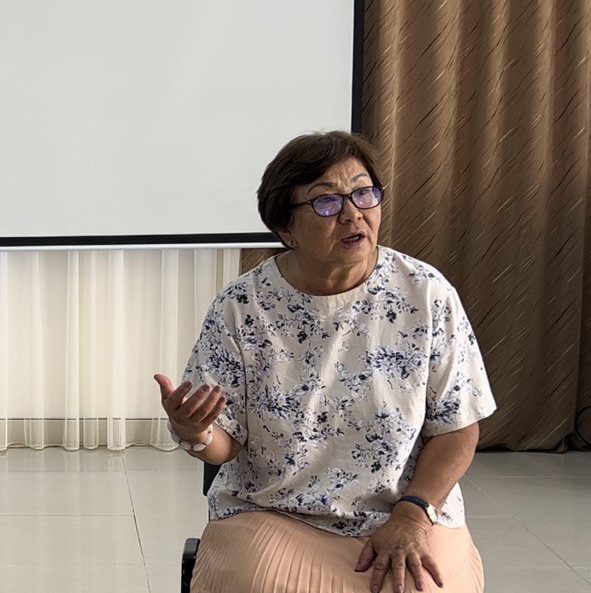
Traditional open lecture by Roza Isakovna on the Academy of Civic Education
Roza Isakovna shared her thoughts about the situation in the world, the importance of political education, and the study of foreign languages.
Meaningful insights that we keep in our notebooks:
- Education is fundamental;
- Political knowledge is important;
- In today’s world, regional alliances are crucial;
- Cultural ties between neighboring states are very important;
- Melting glaciers are a serious threat;
- We have to follow the trends and move on.
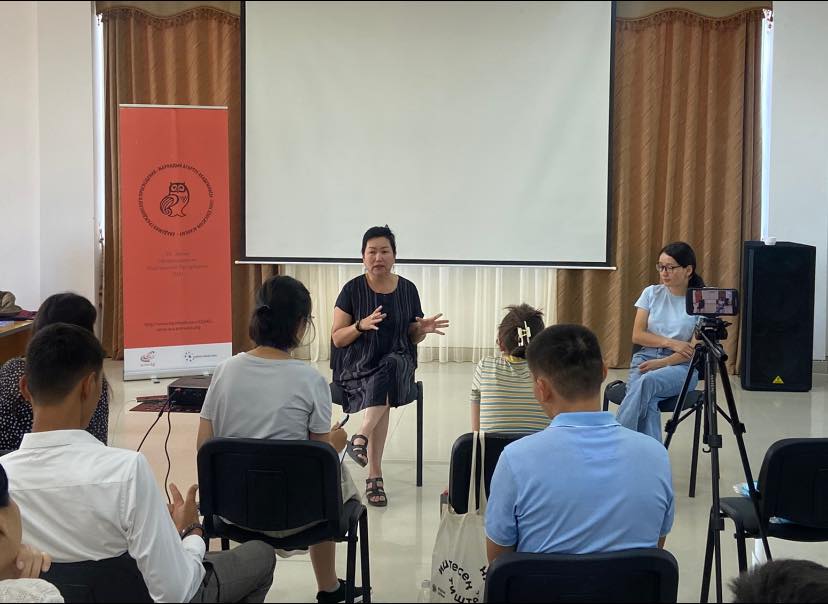
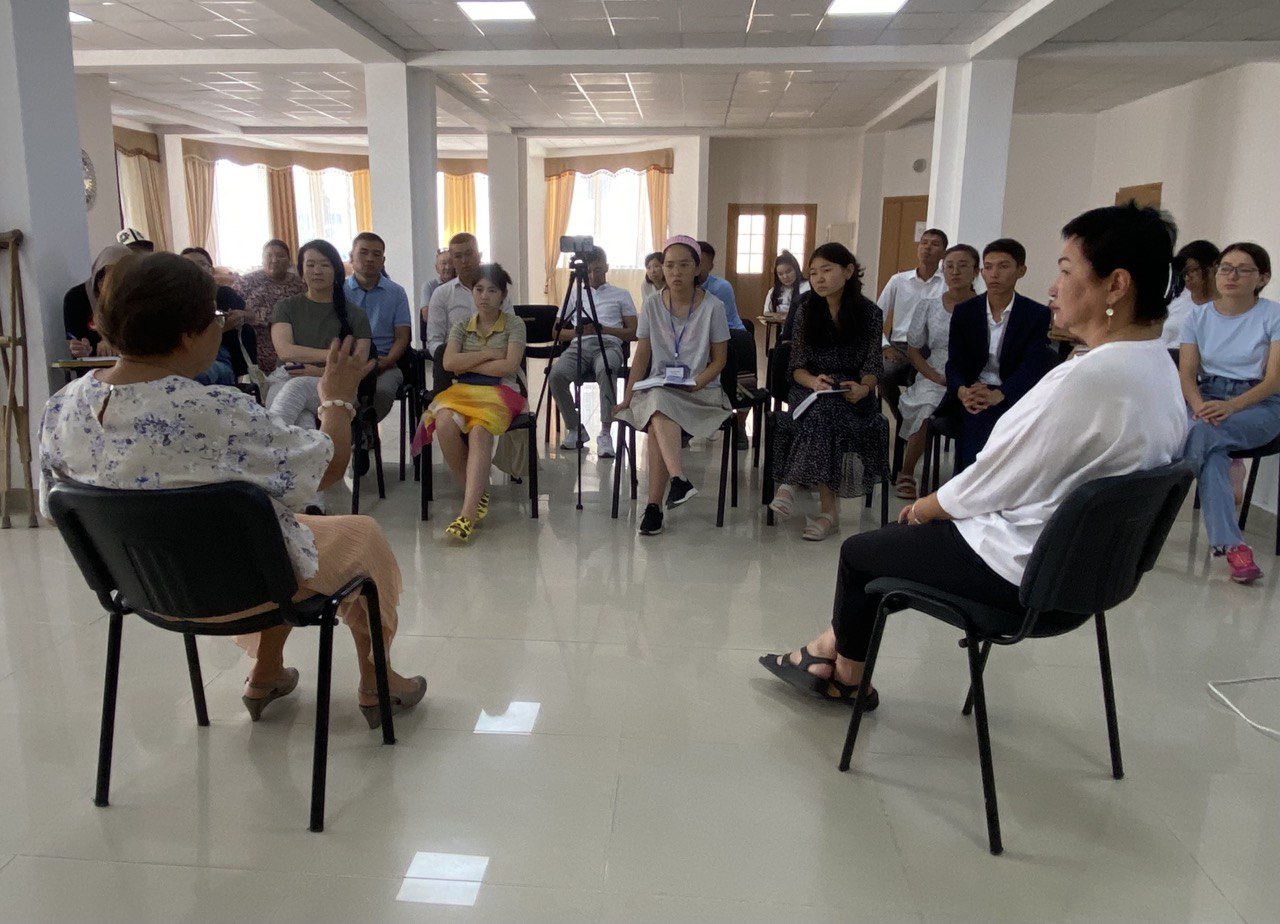
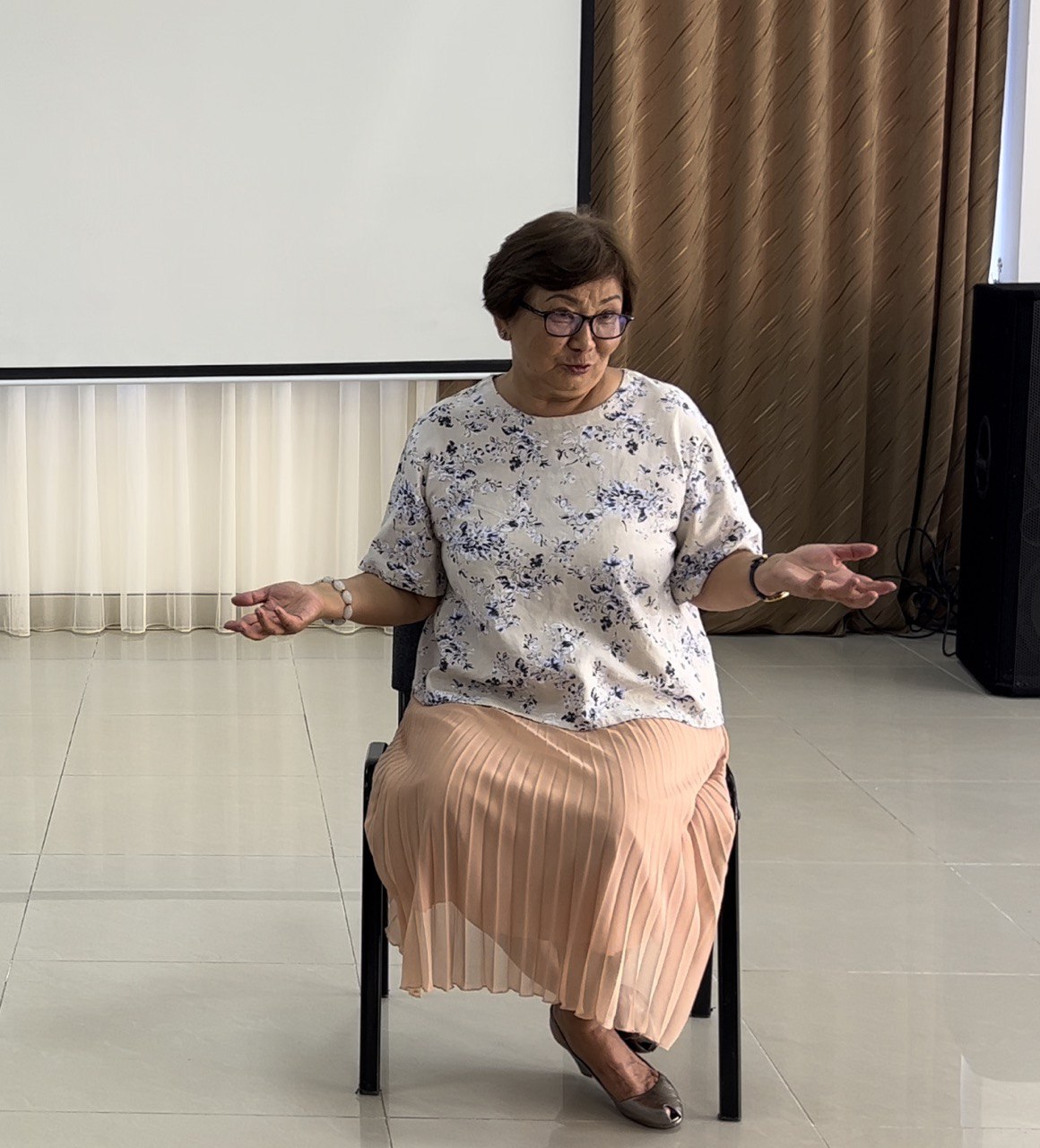
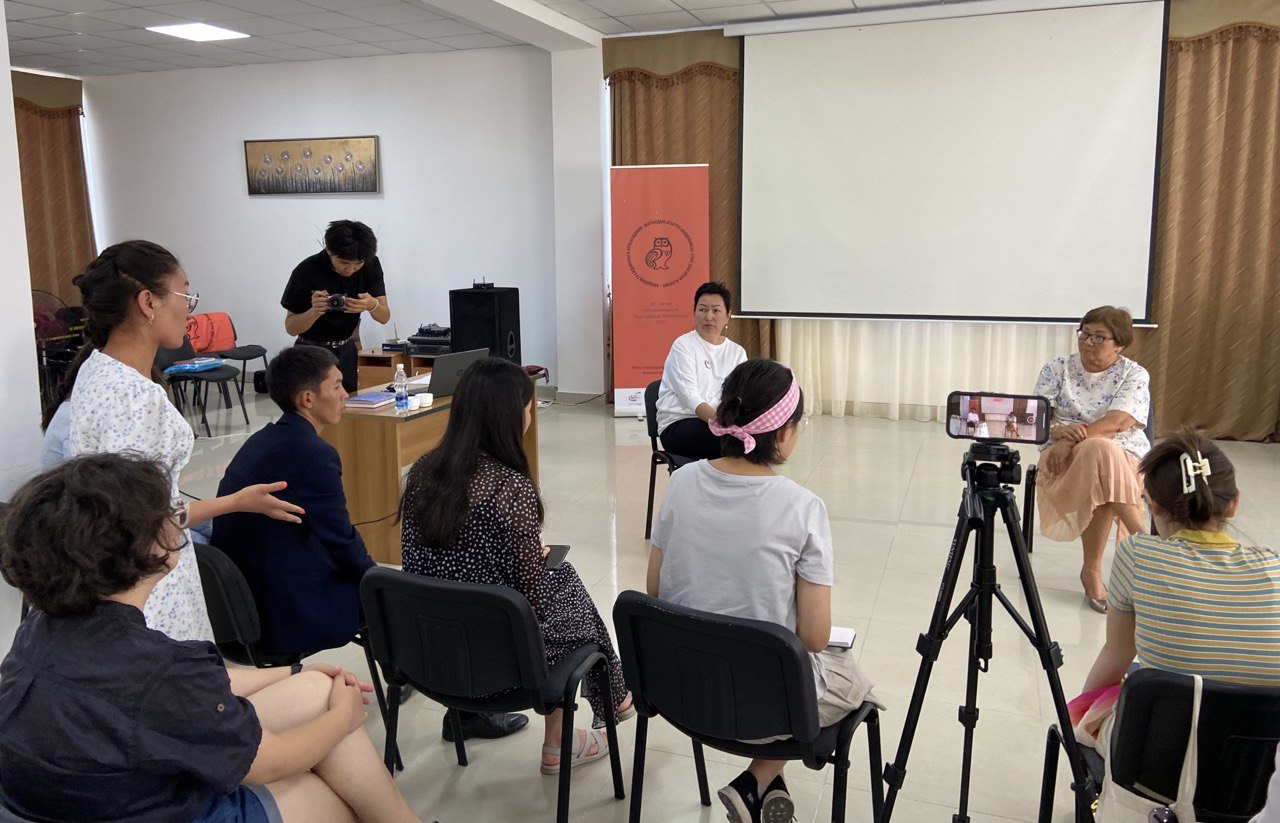
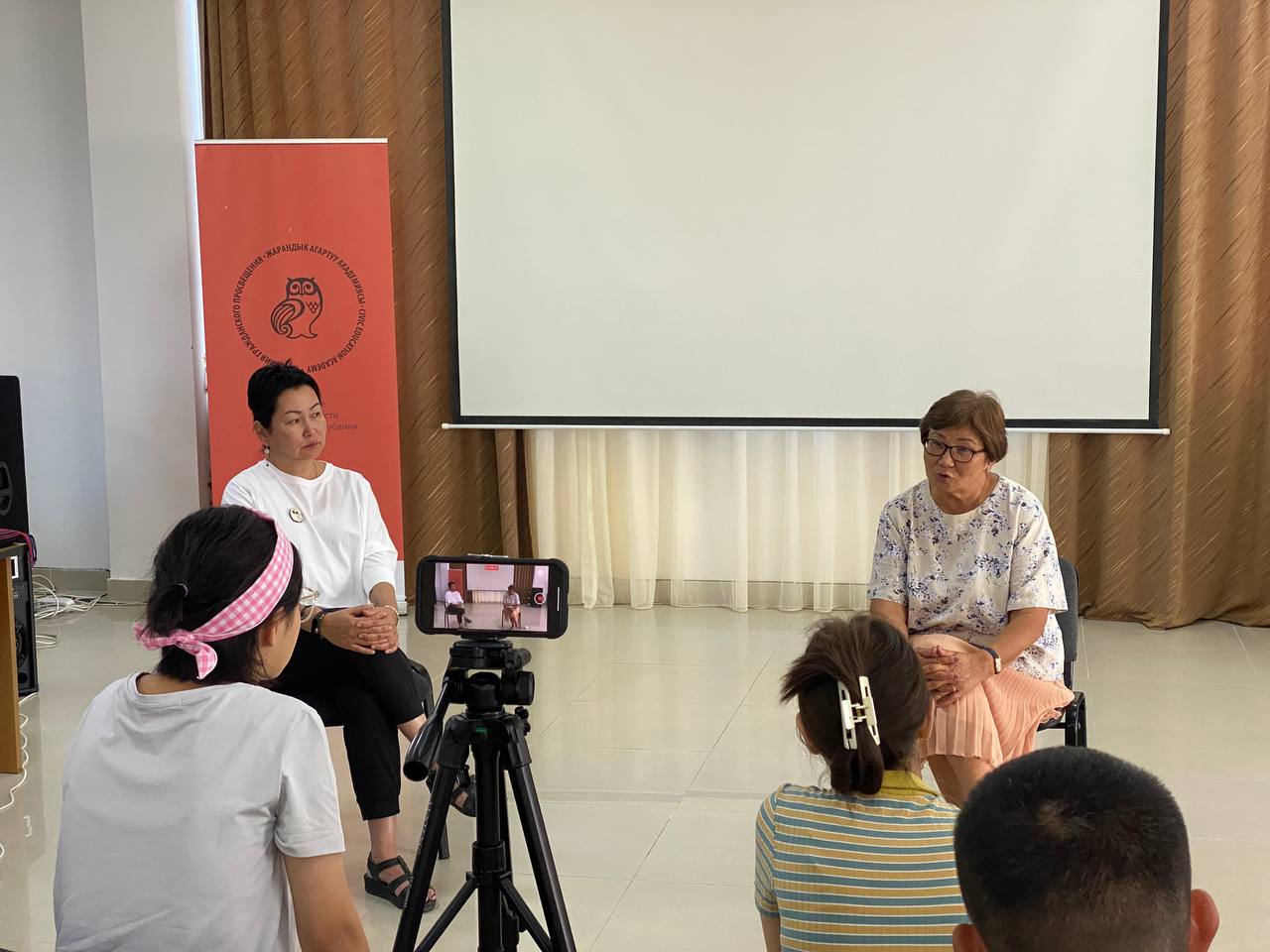
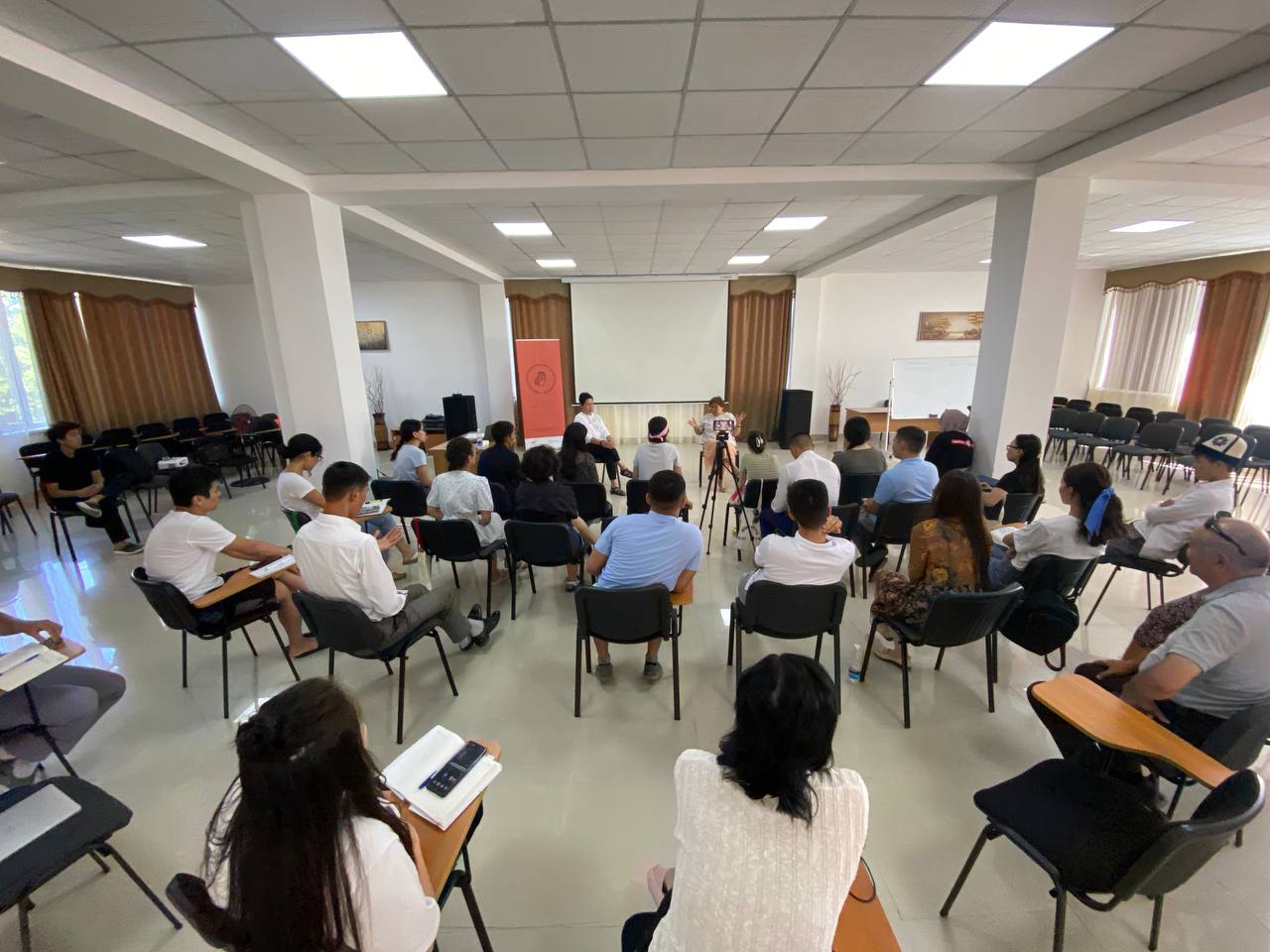
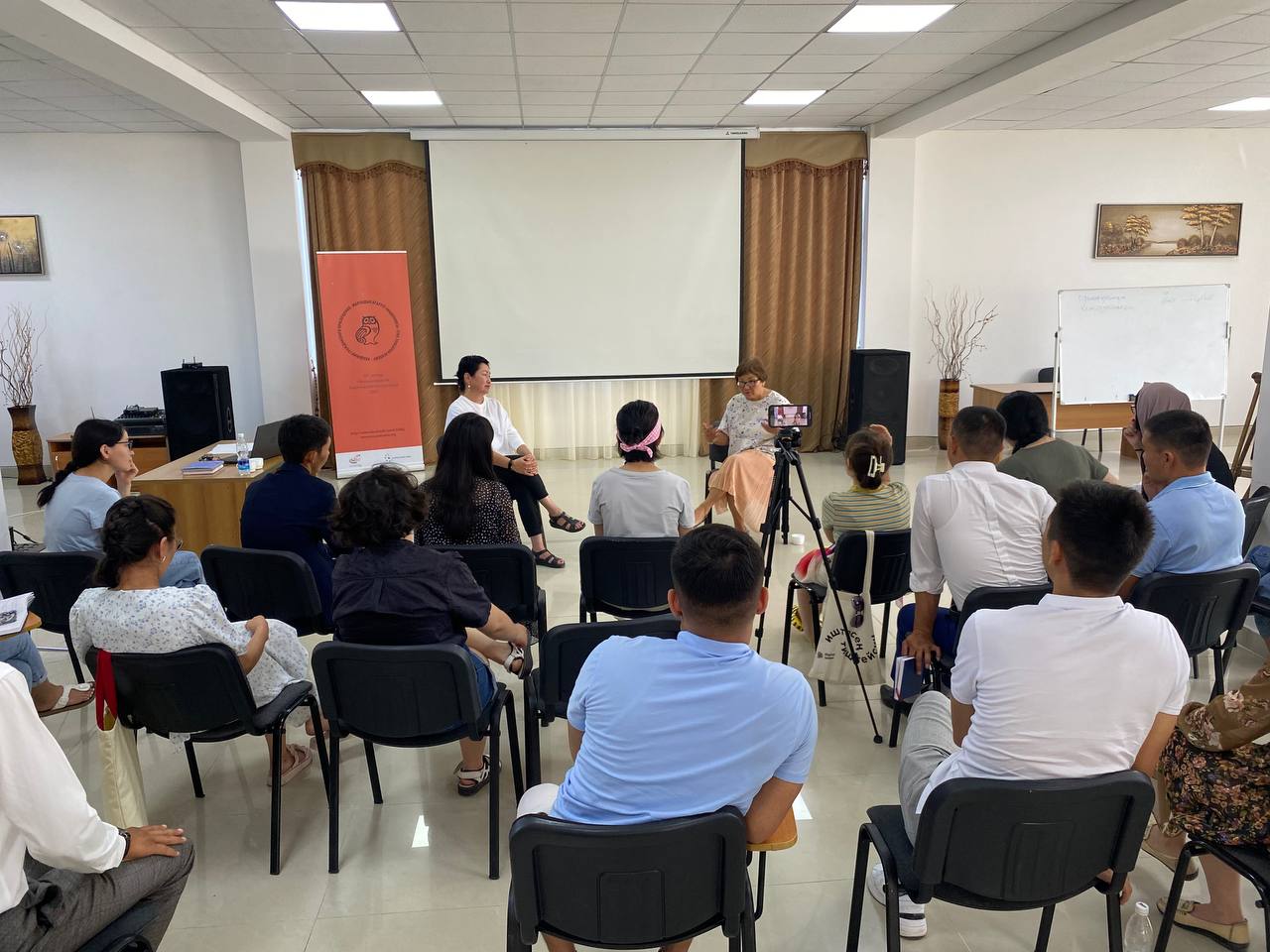
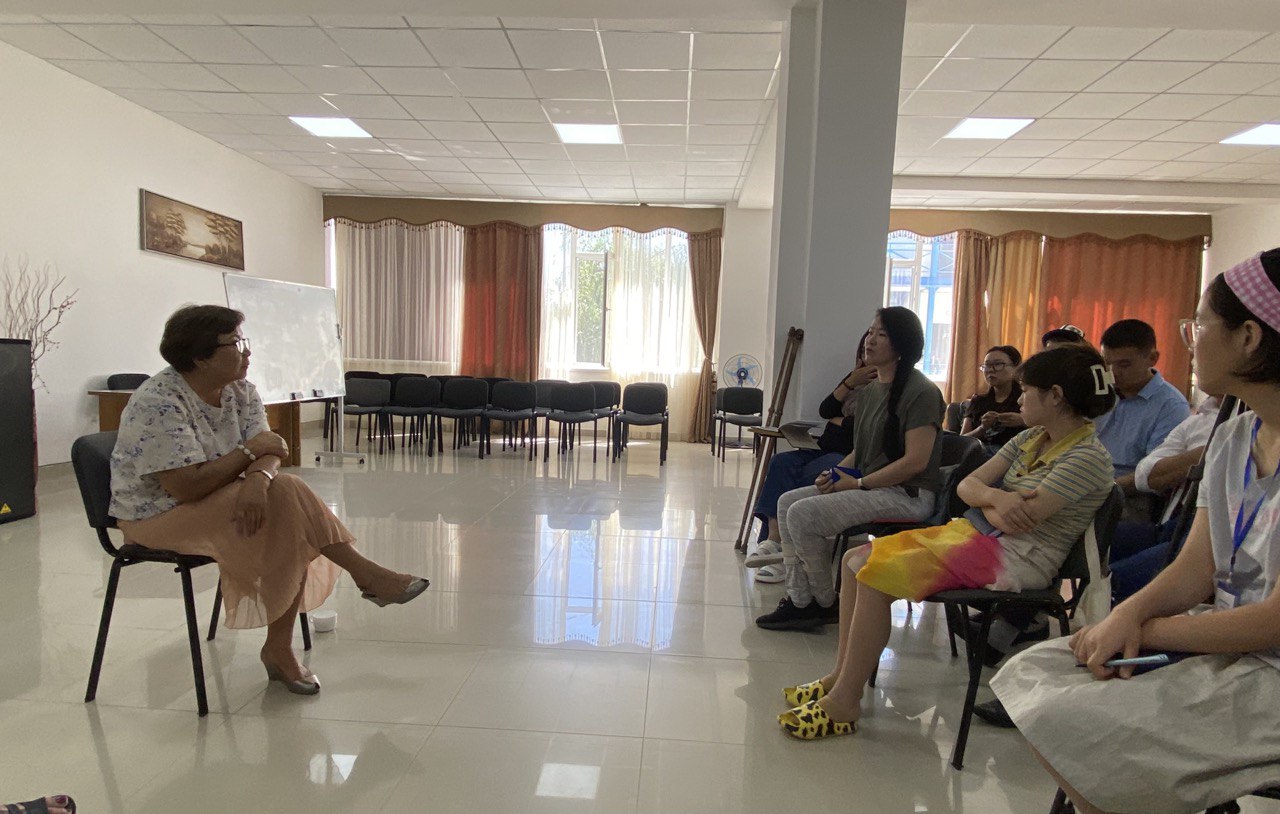
Shamil Ibragimov, Soros Foundation Kyrgyzstan director
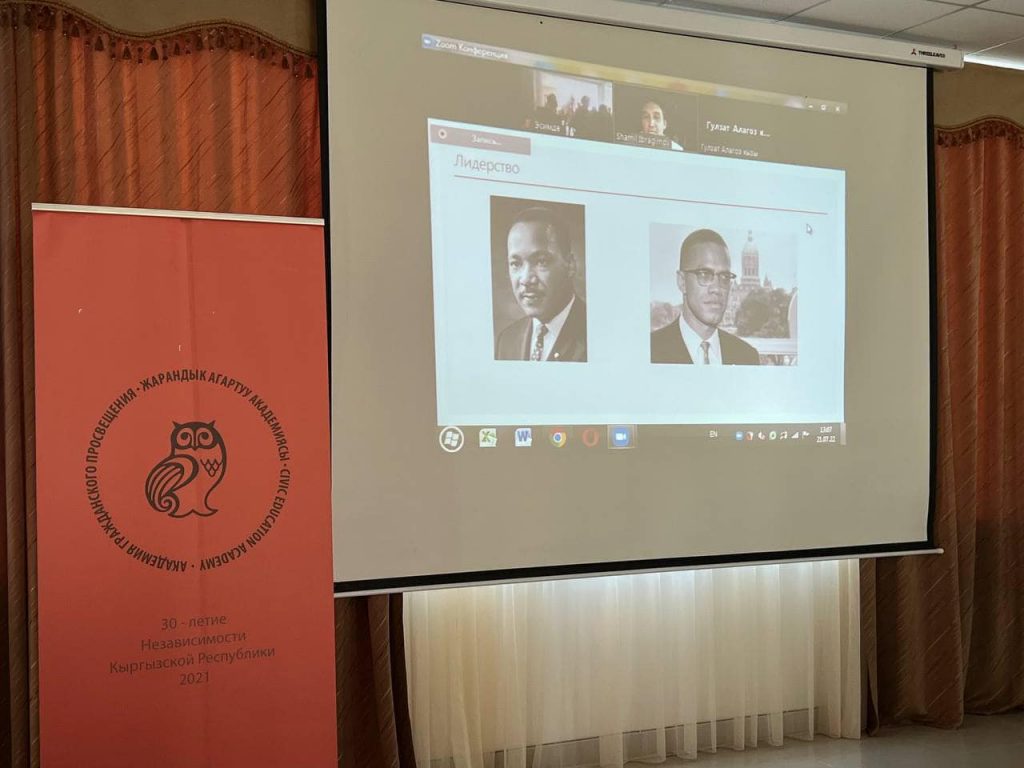
“Hard or soft leadership?”
Using the example of two historical figures, we were able to understand the difference between soft and hard leaderships. What are the advantages of one type, and the risks of another.
Emilbek Joroev, AUCA professor, “Democratic governance” program director at SFK
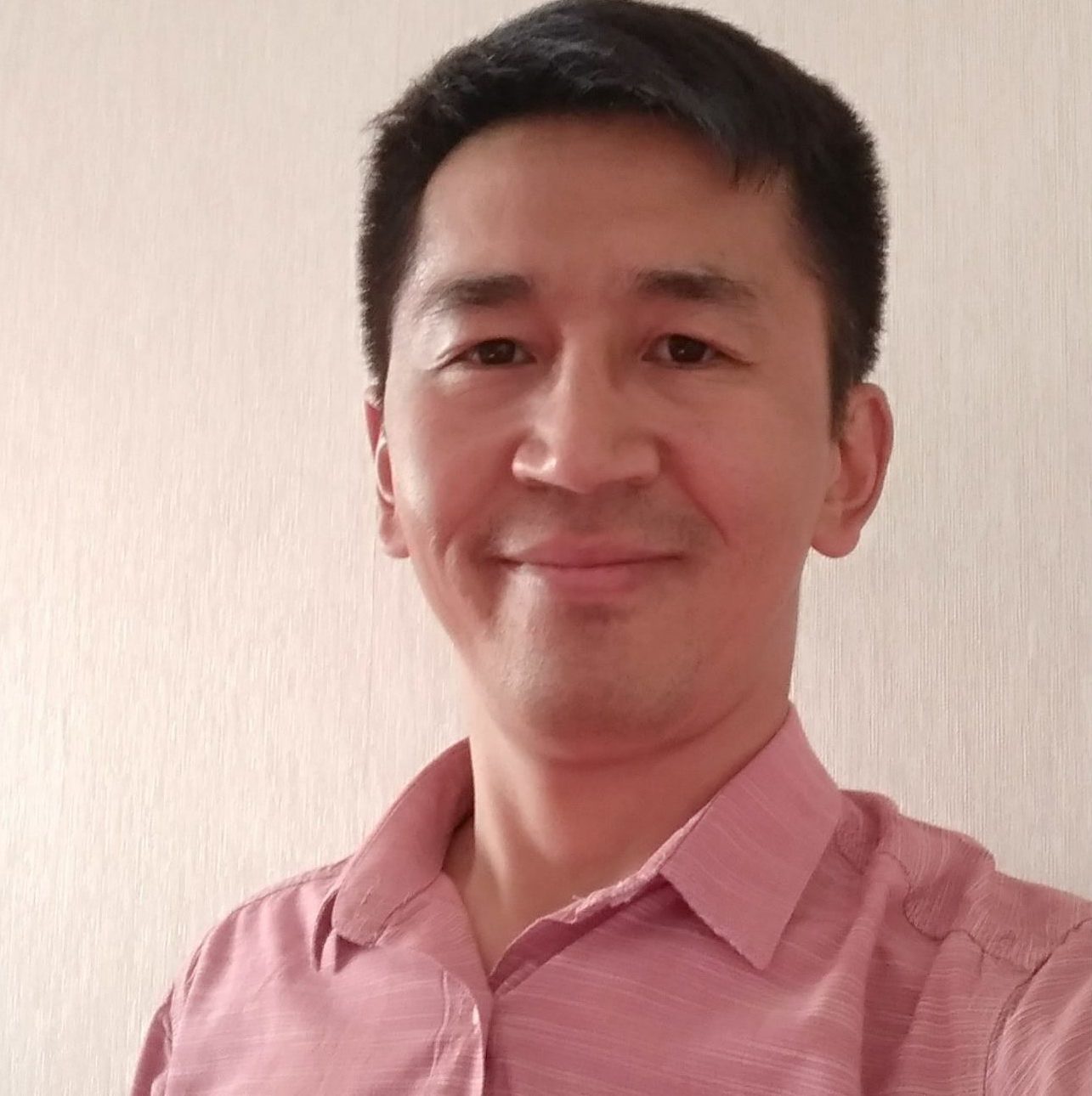
False dilemmas of selfishness/common good,
rationality and responsibility.
Harry Boyte: citizens as co-creators, and citizenship as public work.
Citizhenship cooperating set the common objectives, implement common ideas and improve public life.
Citizenship is more about culture, as co-creation – personal interests combined
with common ones, common interests realizing personal, rational-responsible.
What lies in the space between citizenship as
granted and citizenship as a choice?
What is the transition from the fact that any person is a citizen to the state where citizens are creators, co-creators of their society and common interests?
Academy-2022 contribution
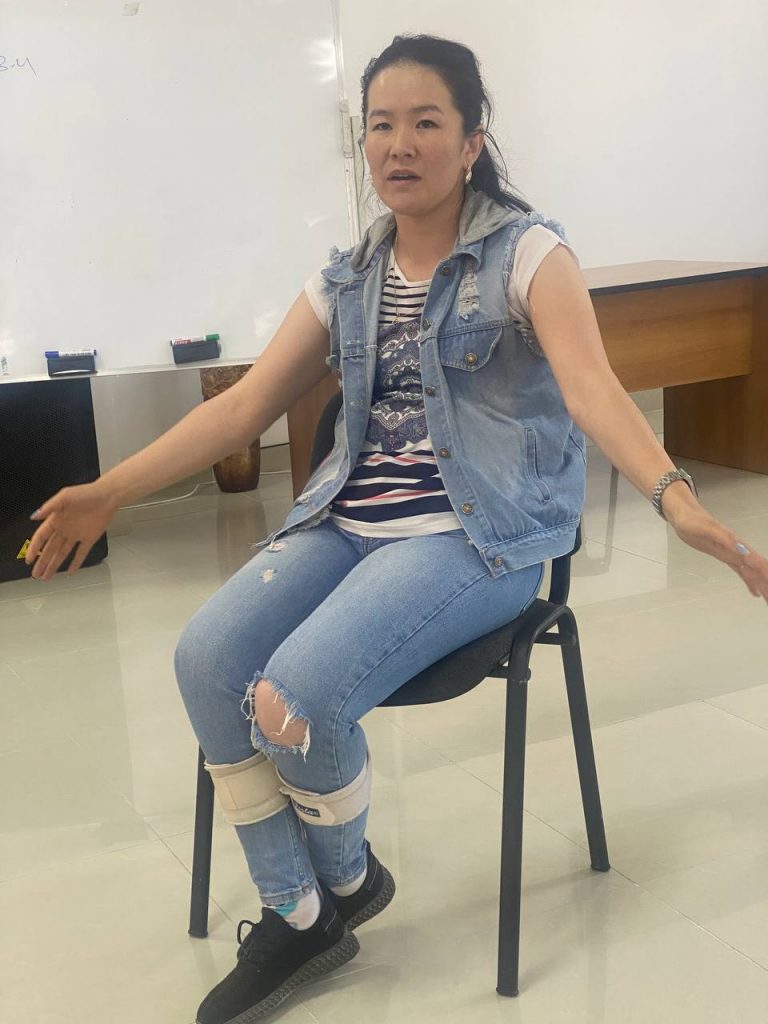
Meerim Moldalieva – participant of the Academy 2022. Member of the local kenesh at the Baizak village.
Meerim says that the society will develop when everyone will act, will be principled and eager for new knowledge.
In the elections of the local kenesh she won with the largest number of votes, with a margin from her opponents, she is the only woman in the kenesh who did not get there according to the quota.
Despite her personal difficulties, Meerim is not indifferent to the needs and problems of her community. She initiated and implemented the idea of installing a livestock crematorium and actively involved in solving social problems.
Мeerim encourages everyone to share knowledge and ideas. Thanks Meerim!
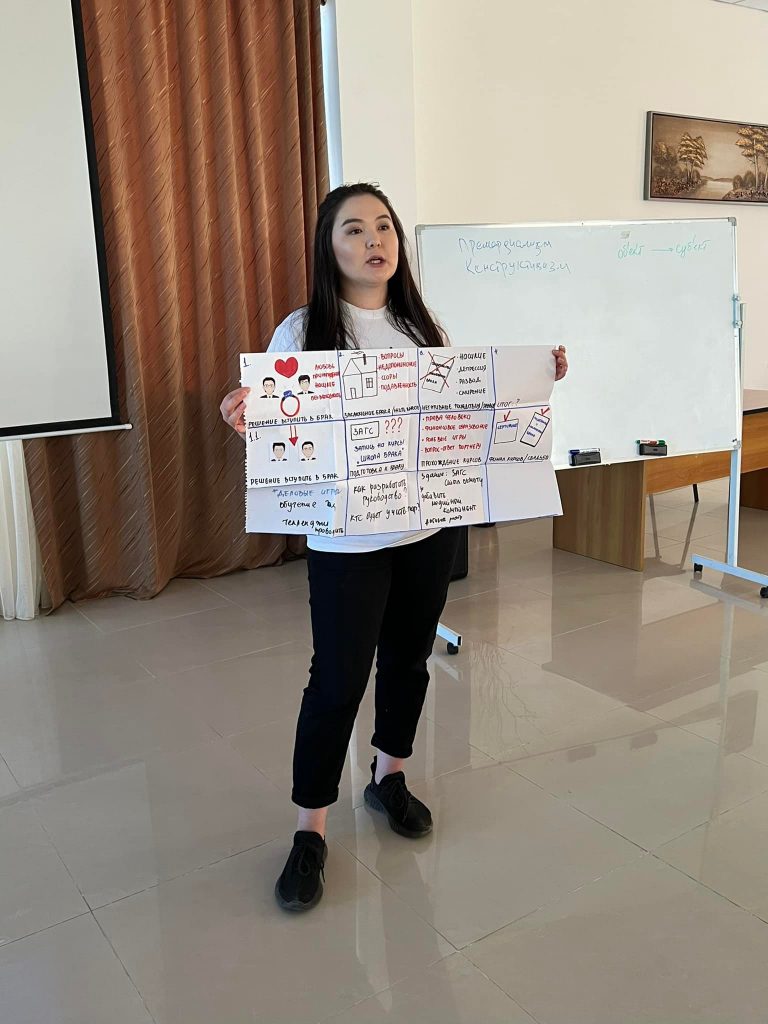
Meerim Kubanychbek kyzy, Academy 2022 participant, works at the Press service of the Central Election system of KR.
School of marriage. Immediately after submitting an application to the registry office, young people are automatically registered at the School. Where they are trained and receive legal and psychological consultations.
The school meant prevent the violence in families. Thanks Meerim!
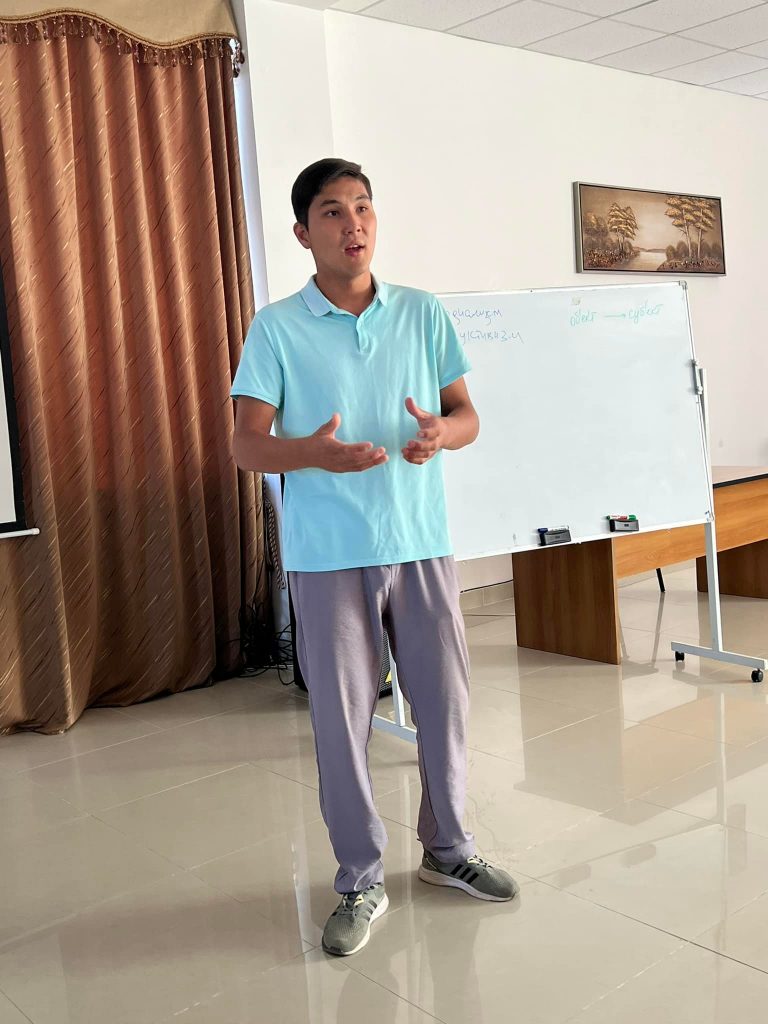
Zhakshylyk Beknazarov, participant of the Academy 2022, director of the Business School.
Zhakshylyk promotes initiatives to support underage children living in suburb areas of Bishkek. In particular Dordoi area.
The participants have many questions ranging from Zhakshylyk’s motives to deal with this topic to recommendations to strengthen his project.
Bolot Abdrakhmanov, State National Security Committee colonel, historical sciences doctor
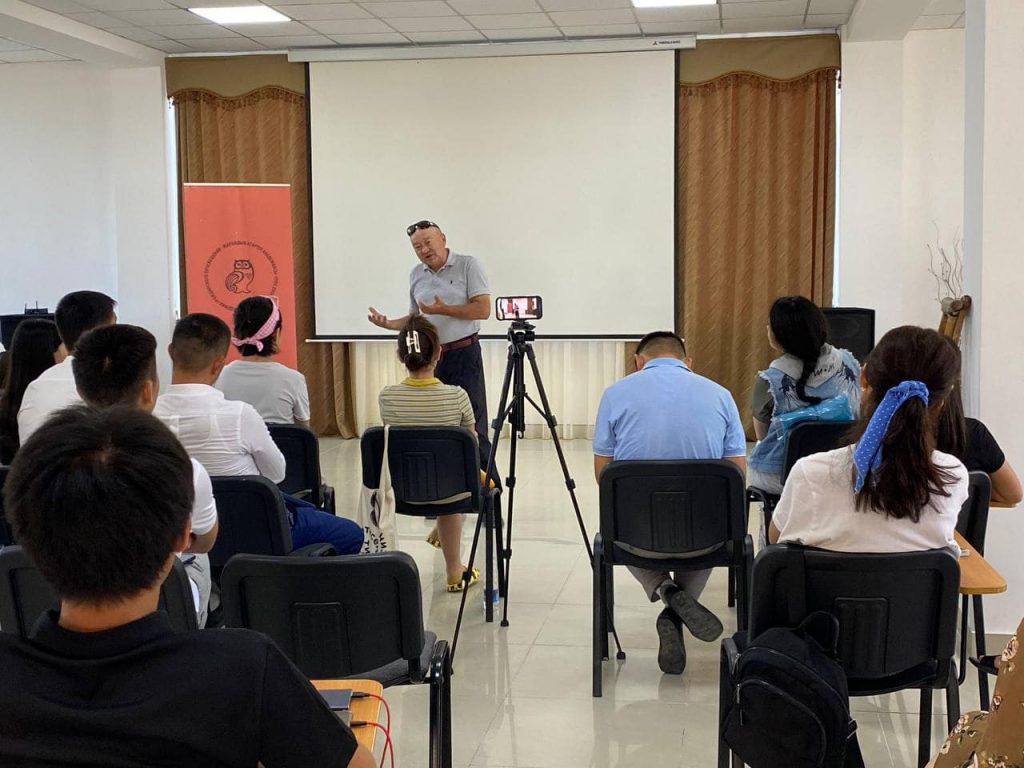
The discussion about history of the Ata-Beyit, about Bolot agai initiative and work on the formation of a list of repressed Kyrgyzstanis. Thanks to Bolot agai, a multi-volume book was published – an archive list of the repressed, many people found their relatives in it, those who were repressed during the soviet period. Thanks, Bolot agai!
Gulzat Alagoz, Esimde research platform scientists
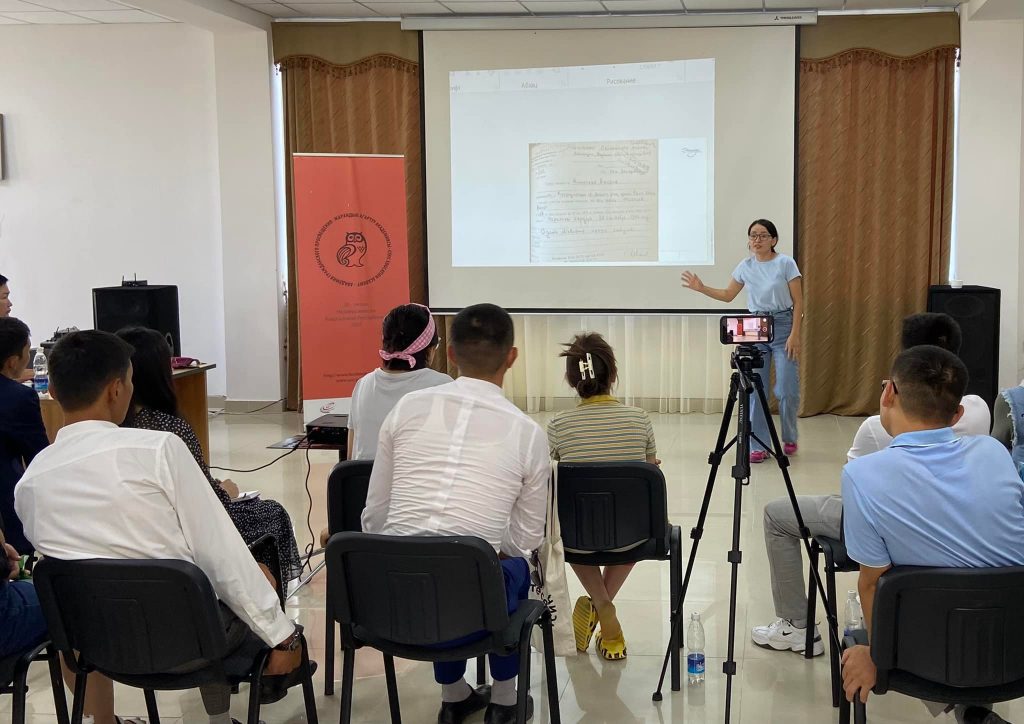

“Ten years without the right to correspond”
Gulzat spoke about Esimde’s and her personal research about the kyrgyz, who were dispossessed and deported to Ukraine in the 1930s.
About the process of dispossession and the repressive policy of the state towards the people, the details of this process, which open eyes to the tragedies of this period.
Our participants asked many questions and suggestions. Including about the situation with the Basmachi and the attitude towards them in Kyrgyzstan. Thank you, Gulzat Alagoz!
The presentation of Gulzat Alagoz prompted the participants to an honest discussion:
- About memory;
- Who are Mankurts?
- Who are Basmachi?
- Why Urkun, but not only national liberation movement?
- What history textbooks are used in schools in Kyrgyzstan
- Citizenship? Memory? Are there interconnections?
Interactive game based on the 1954 animated film “Animal Farm”, J. Orwell
We watched the 1954 animated film “Animal Farm”. And now, everyone is defending certain position in the first name: conformists, journalists, civil society, nationalists, liberals, clergy, the working class, the authorities.
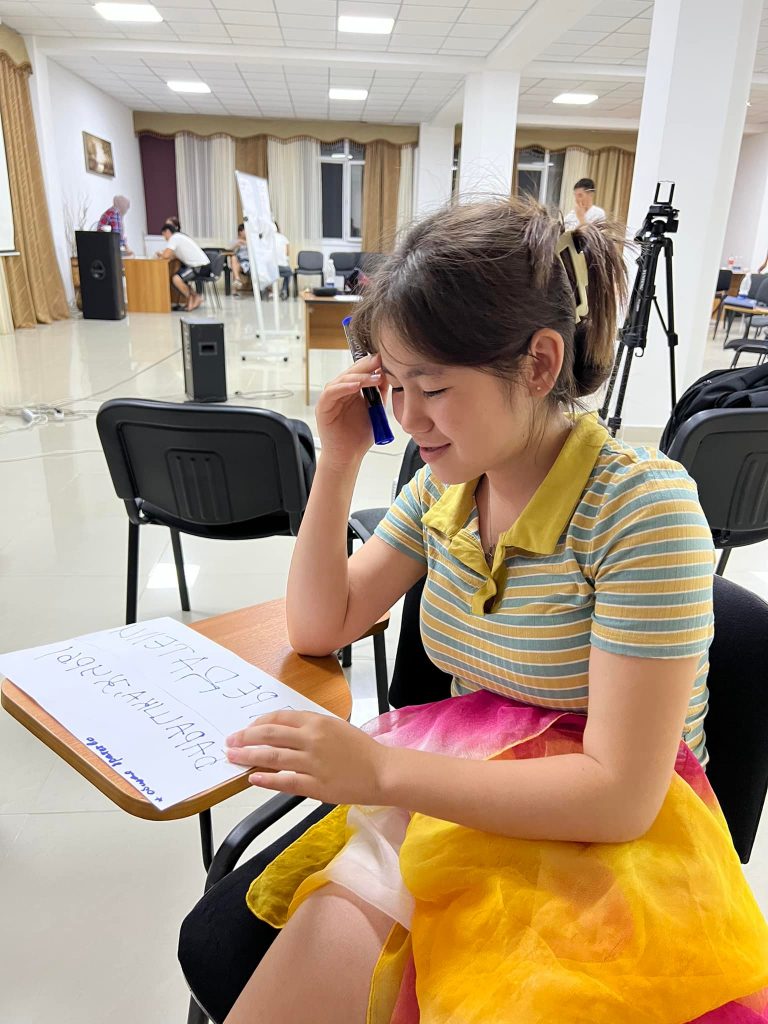
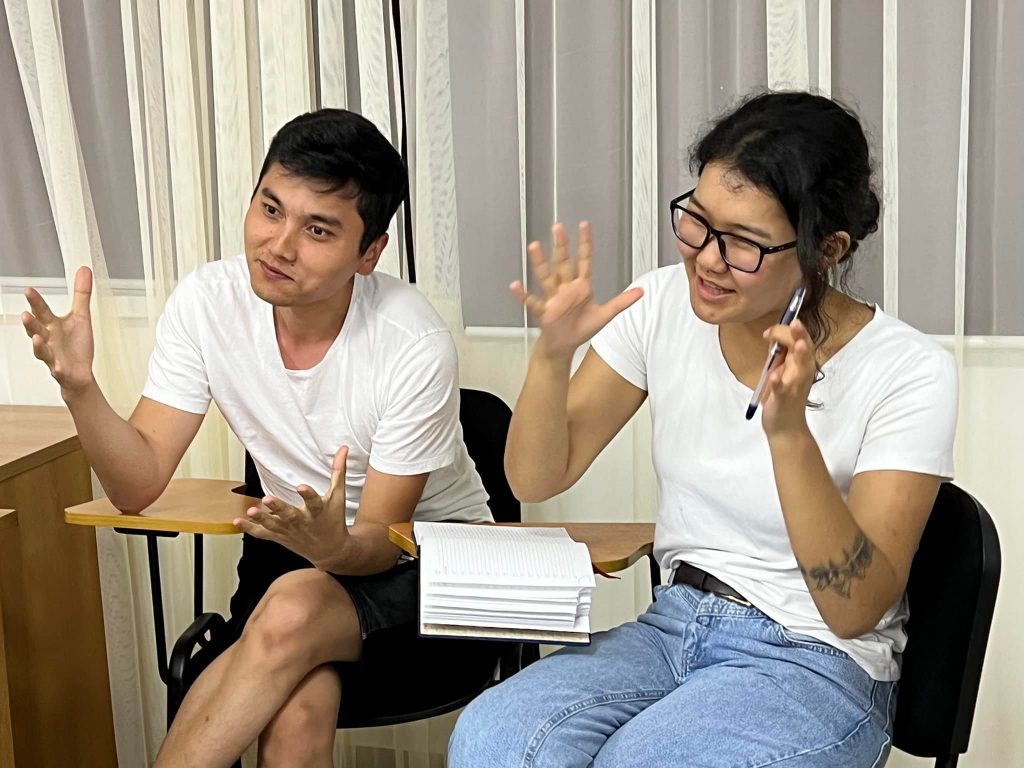
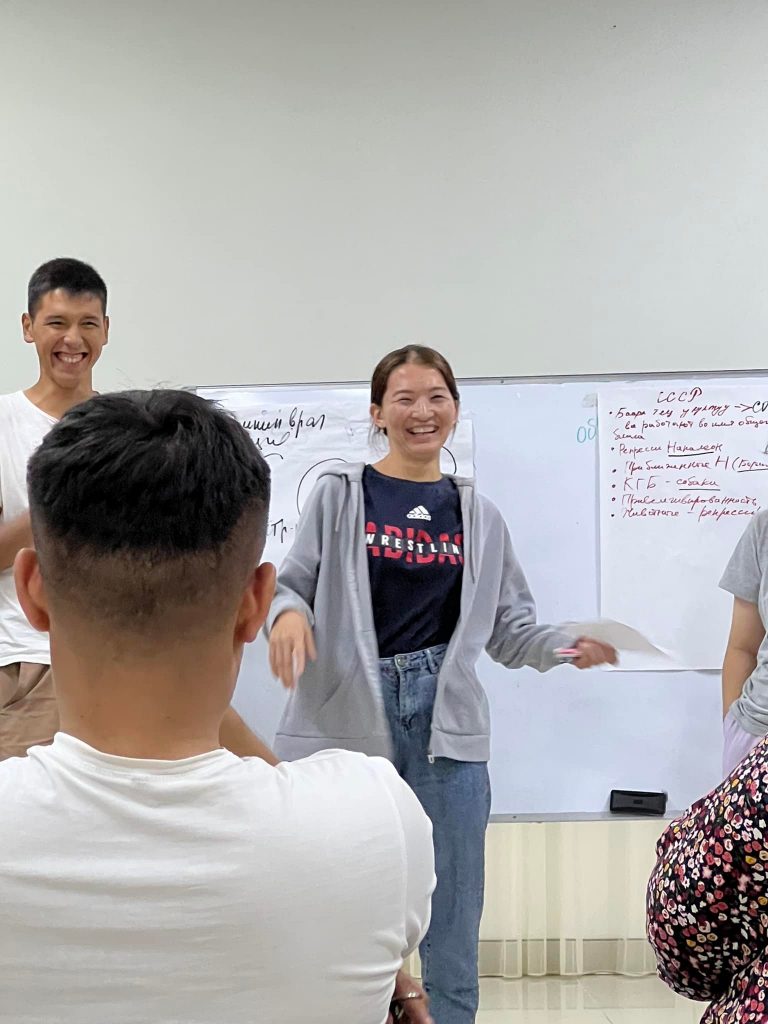
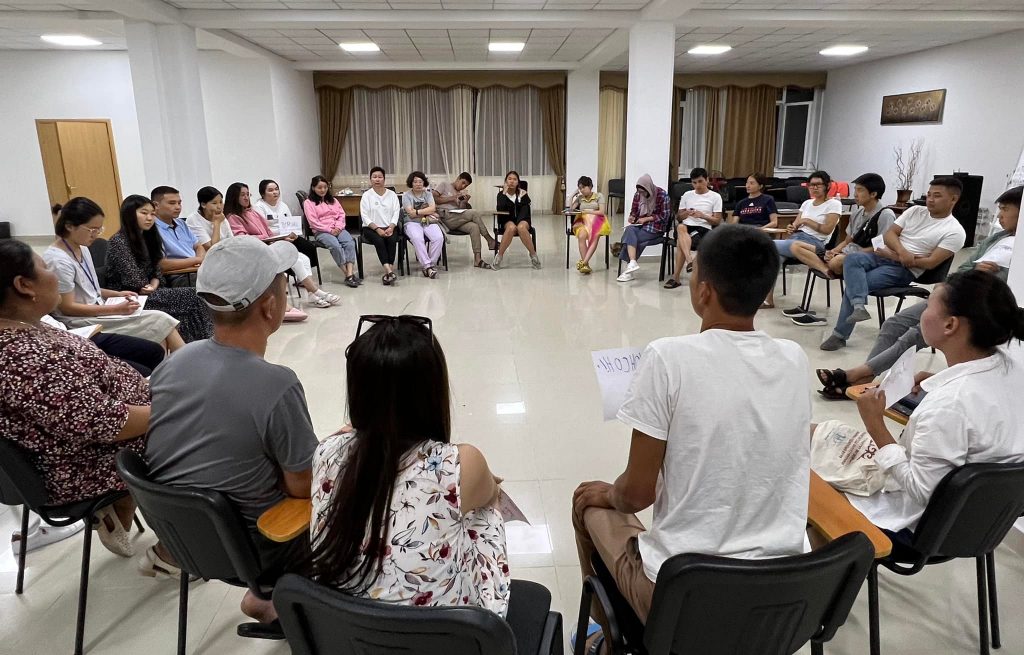
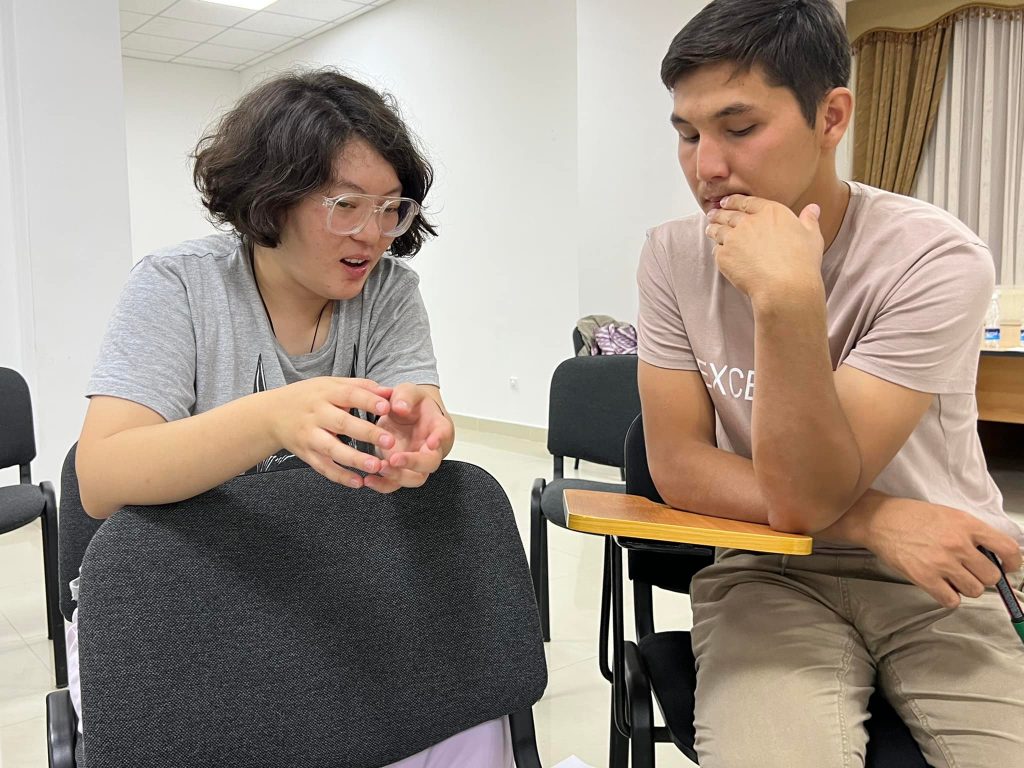
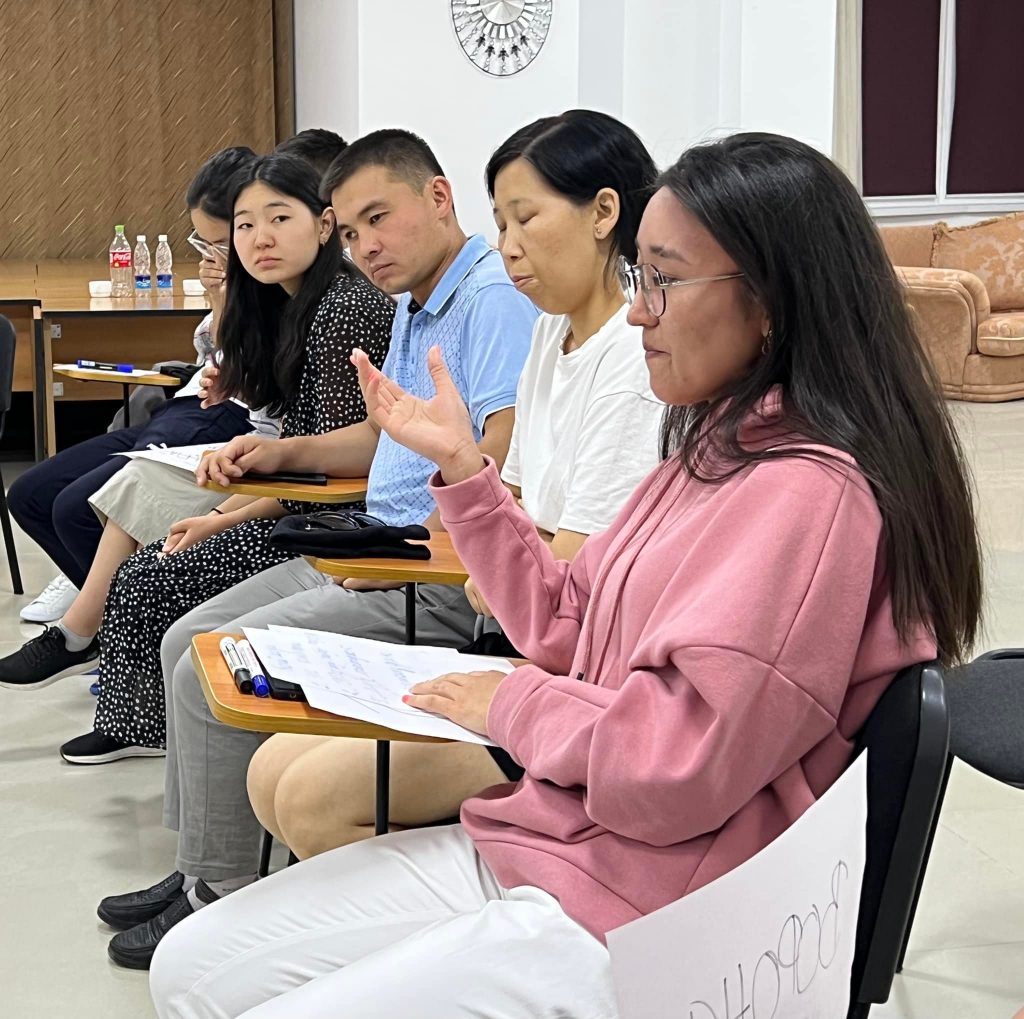
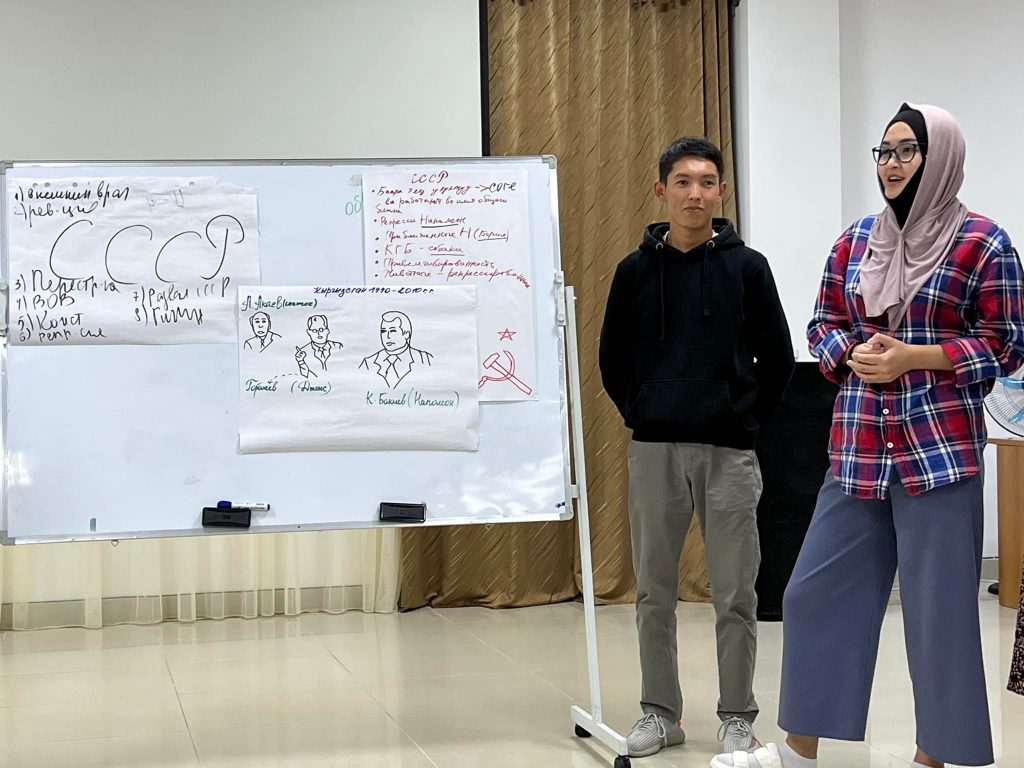
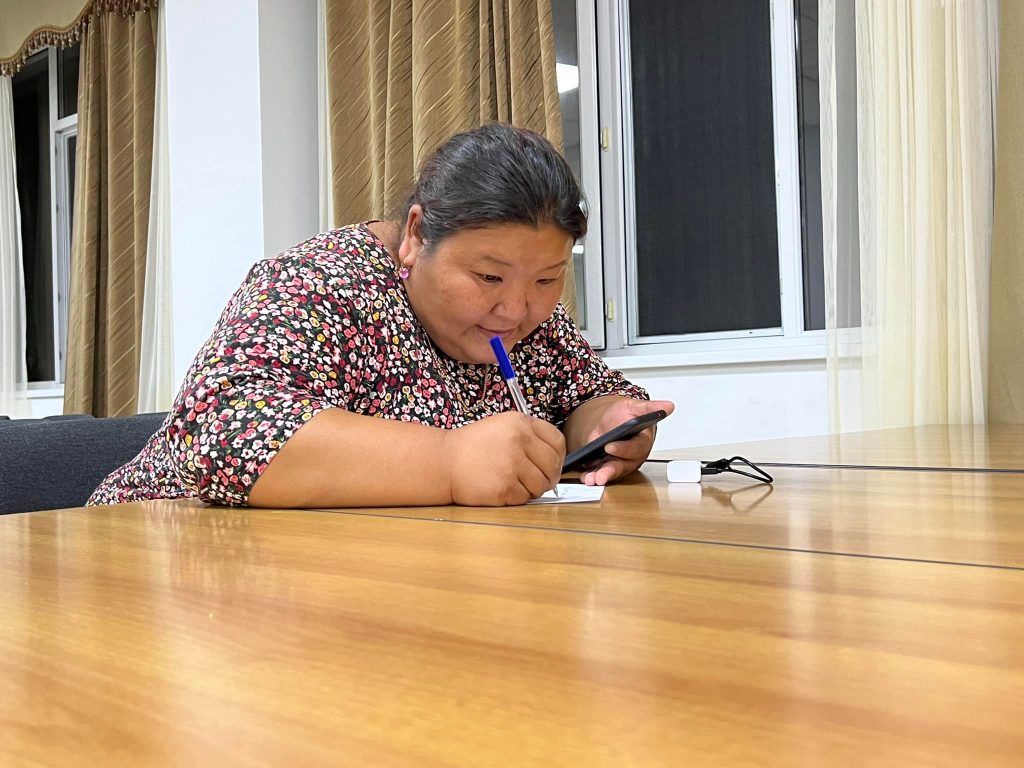
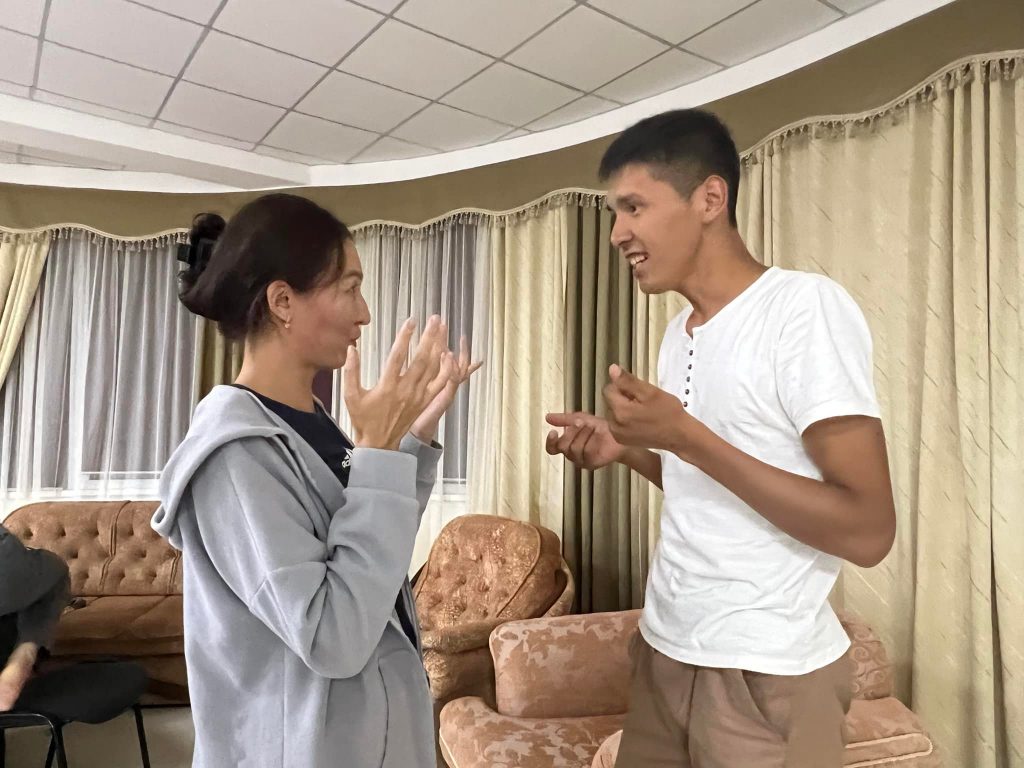
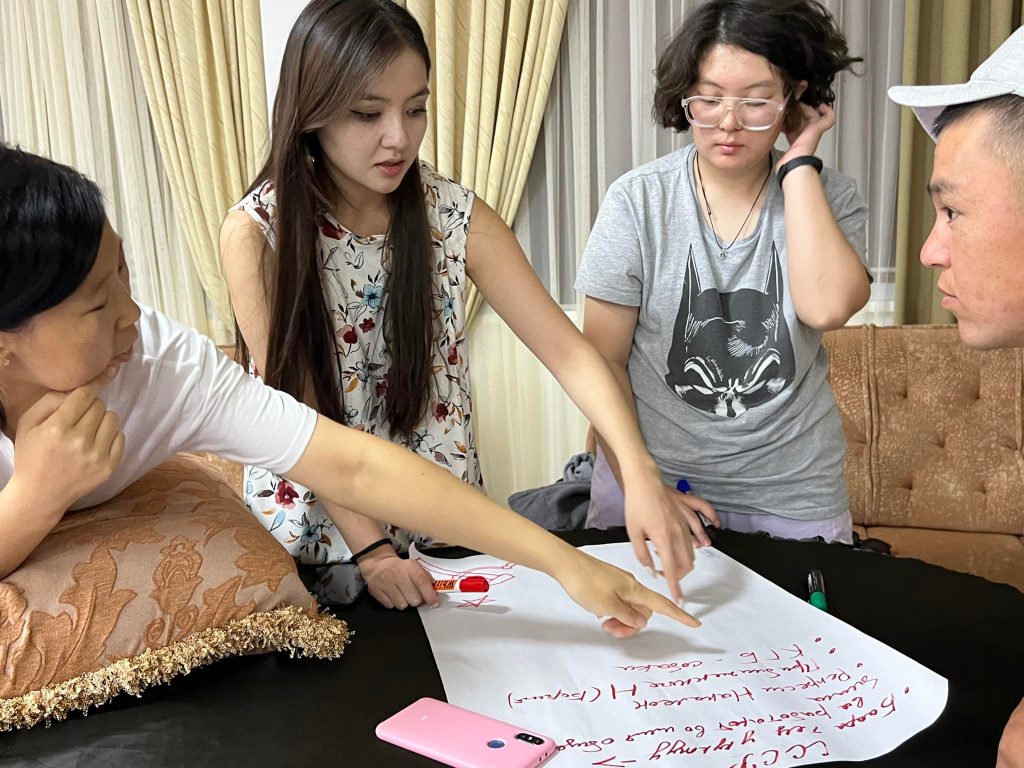
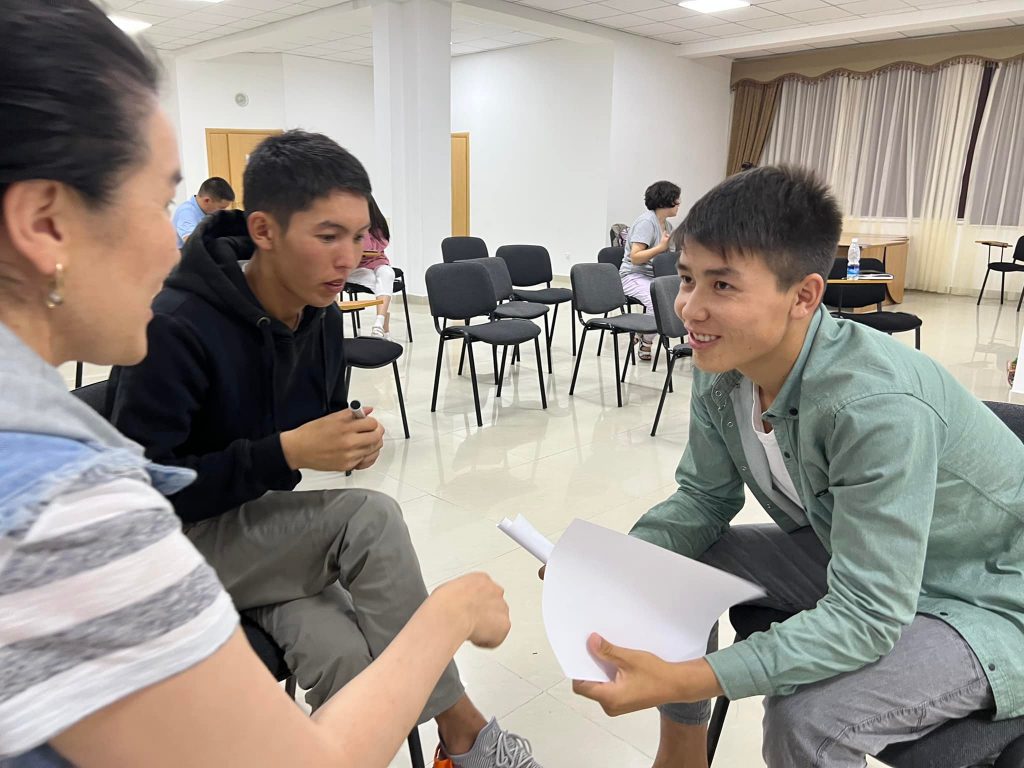
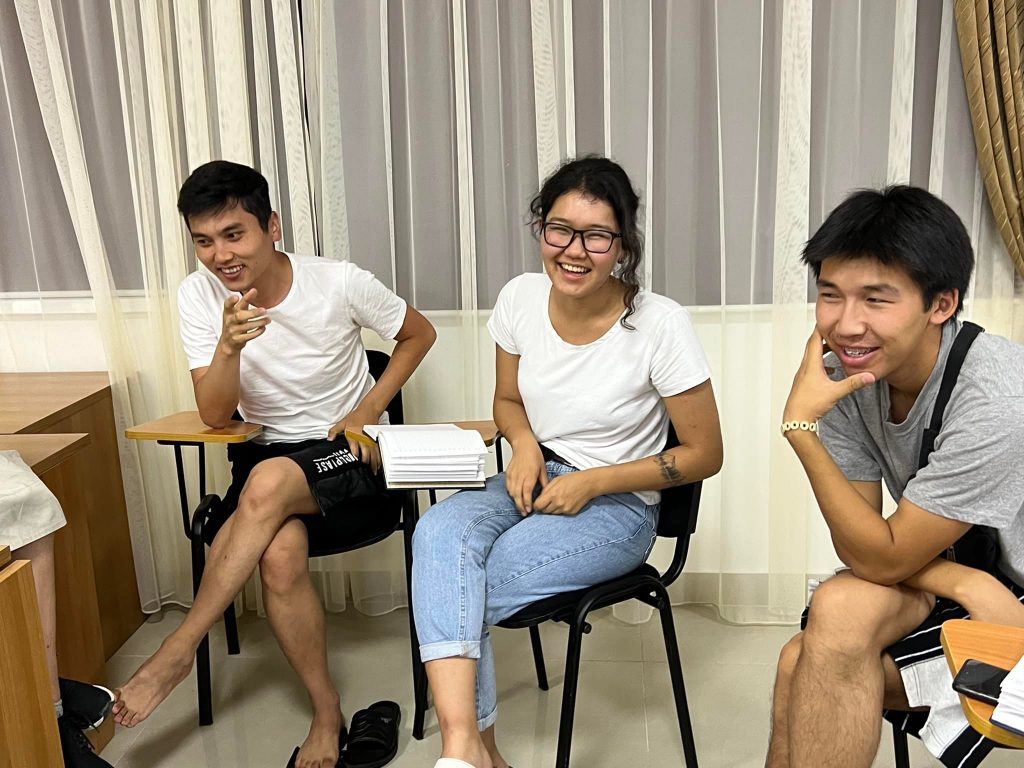
Zarina Urmanbetova, PhD researcher in the Social Anthropology Department of the University of Fribourg
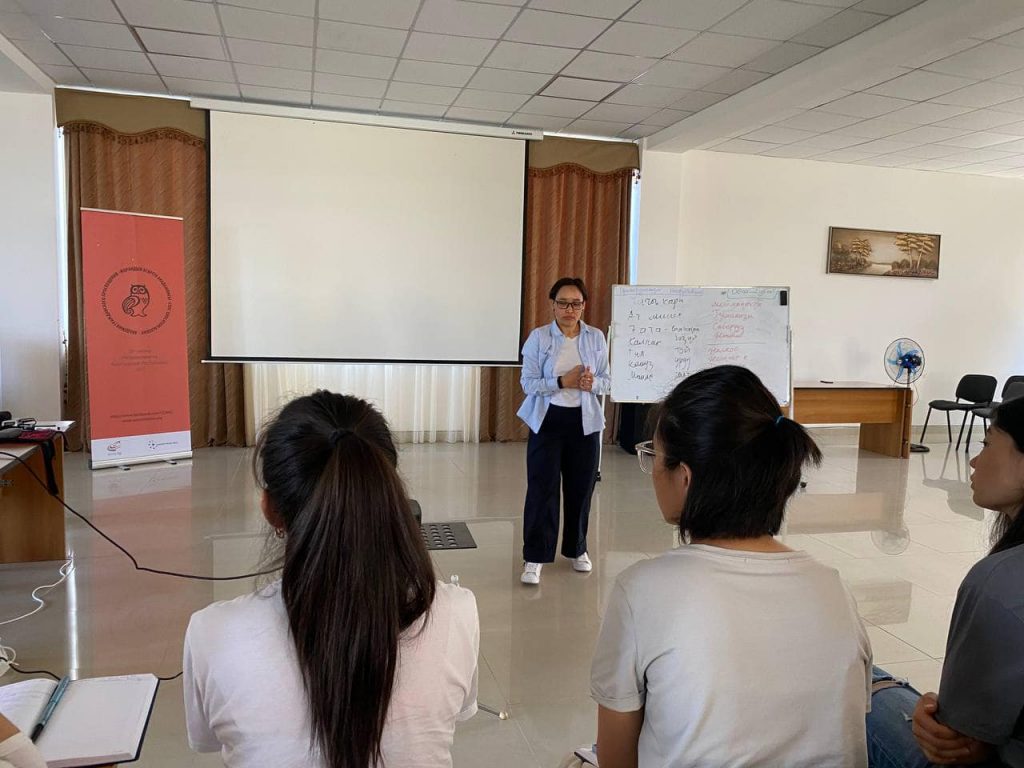
Who is Kyrgyz today?
About the ways to understanding ethnicity/national/ethnic identity:
- (Social) Constructivism
- Primordialism
Science – Anthropology;
Science and the Power.
Savetbek Sadyrsson, founder of Matsunoki guest house in Karakol
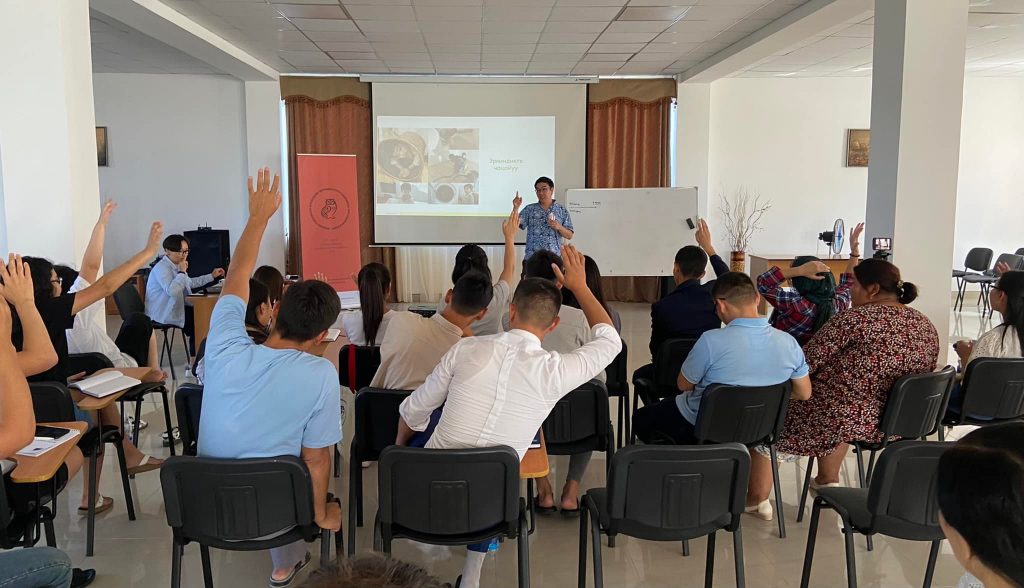
As a result of his own analysis, our speaker identified the points that influenced him as an entrepreneur:
- Freedom in the family;
- 1991 Independence;
- 1997 land reforms;
- 2011 Free visa
- The ability to swim against the stream.
Adilet Beishenov, KG Analytics
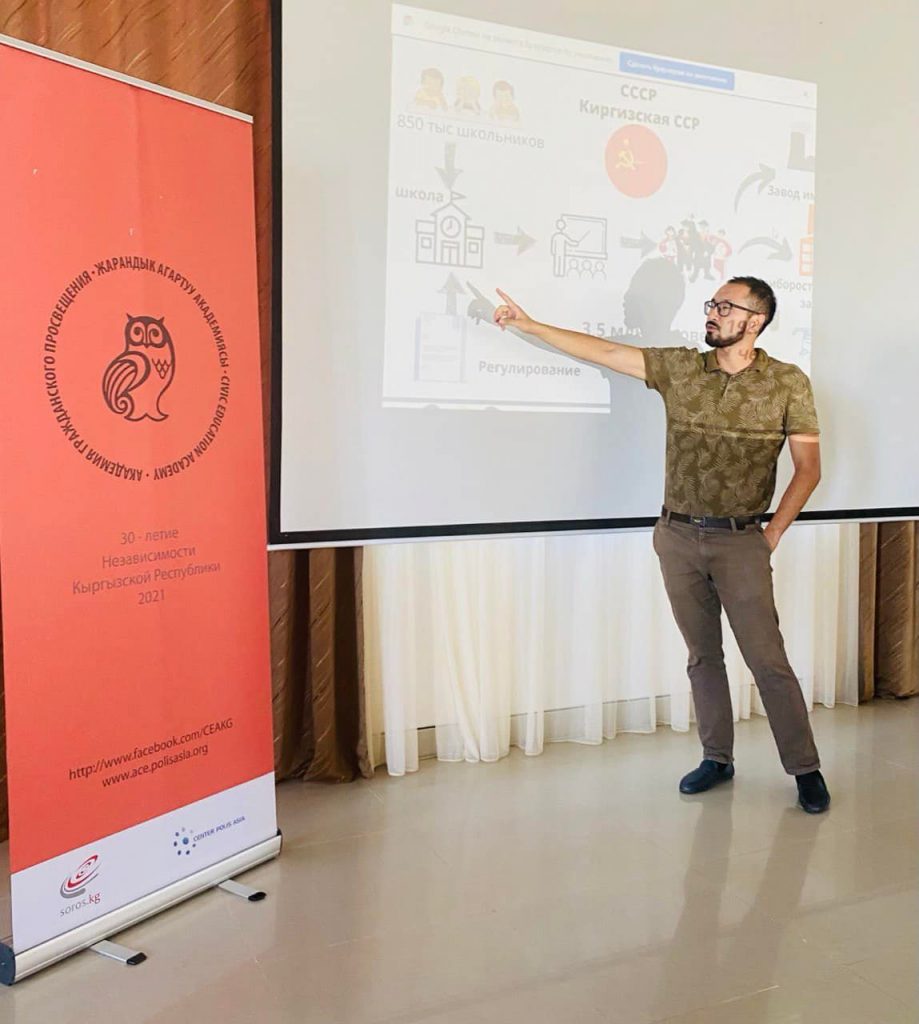
School education in Kyrgyzstan
Adilet spoke about the situation with school education in Kyrgyzstan, about such concepts and approaches to the education of children as:
Champion Choice; S – curve; Elite approach.
There are school teachers among our Academy participants, and we had an interesting debate with the speaker.